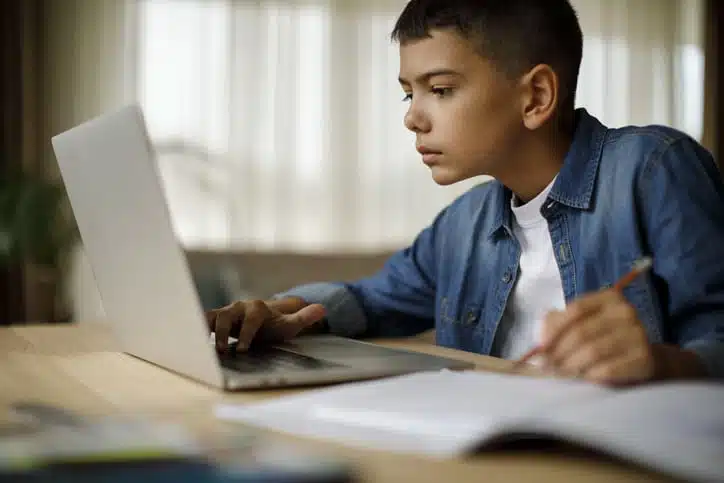
Download our free home learning pack by clicking the link below:
Lockdown Education Information and Resources for Parents
The COVID-19 pandemic and the measures put in place to slow the spread of the disease have thrown families together and changed the way that everyone is working, socialising and studying. These are worrying times, but the closure of schools doesn’t mean that your child’s learning progress needs to be lost, if you can keep them engaged with the love of learning.
There are many opportunities to enjoy stimulating content online together, including recorded theatre performances, virtual tours of art galleries and of course taking part in daily PE with Joe Wicks on YouTube. Listen to audio books – ideally with your child reading along from the book – and read to each other every day. Every day at 11am, you can also take a break and listen to David Walliams reading one of his World’s Worst Children stories on the World of David Walliams website, if your children are at that age. You could practise maths concepts whilst baking together, such as using ratios to increase and decrease quantities of ingredients when baking for a different number of people than a recipe states.
Younger children don’t even have to know they are learning. They just need encouragement to stay curious about the world (even if right now it’s only your back garden or the contents of your kitchen cupboards), about books, or about a favourite topic such as dinosaurs.
Parental Impact on Learning
Parents have always been able to help build learning skills in their children; by thinking of themselves as extra teachers to their children, they can help them make the most of their learning opportunities. This has been literally brought home to parents under the COVID-19 pandemic, with children conducting all their learning there. In the absence of teachers, parents are being called upon to fulfil that educational role as well as their parenting responsibilities. General ways in which parents can support learning include showing a genuine interest in topics being studied, making learning a fun family activity, and encouraging children to see failure as an opportunity to improve and succeed. Parental support and motivation are key to children’s progress.
Extra Support
Children will often need parental support to understand the work that’s been given to them and what output is expected of them. They may also need help organising their studies at home, such as timetabling the work given out online from school during term time and over the holidays. Not every parent will feel able to provide this support or have the time to give it. This is especially likely if parents are trying to work full time from home through the “stay at home” period. This is where JK’s online Home School Mentoring service can bridge the gap, with daily tutor contact by video calls, to ensure that children are on track with work and can ask questions about elements of their work they don’t understand. Tutors are offering support to parents through this service too, to optimise the learning environment at home.
In addition, if your child has been struggling with any aspect of schoolwork, this might be just the time to consider some gentle short-term online tutoring. We have brilliant tutors available to provide short-term trouble-shooting subject tutoring online at all levels, using our fully interactive online classroom.
Home Studying Basics
A regular time and place for your child to do their schoolwork at home is essential, so this doesn’t need to be negotiated each day. Agree with them when they will work, unwind, exercise and chat online with their friends and the family they can’t see in person. Children generally find structure reassuring. Ideally remove any possible distractions such as the tv, mobile phones or siblings, but with everyone at home together the latter may not be possible, so consider giving them some headphones to wear instead! Keep all that they need to study close to hand – their workspace can be anywhere in the house, but it should be well-equipped, so they don’t waste time searching the house for a highlighter or a hole punch every five minutes.
Encourage your child to review what they need to do and prioritise. Have a daily chat about what needs doing, what’s hardest, and what feels impossible and might require extra help from you or online from their teacher. Again, if this isn’t feasible, consider seeking external help. It’s always best if they tackle the hardest work first, before they get tired, and then it’s easier to push on to the end of the session if they know the later homework is easier or more fun.
Regular breaks are important. Try to keep children hydrated and have healthy snacks on hand. Encourage a quick dash into the garden to play with the dog or have a quick game of Swingball during their break, to get them moving and clear their mind ready to return to their work.
Encouragement
Be clever about this. Some children enjoy doing schoolwork, while others need more coaxing and encouragement. Let them see that you value them working, but in a relaxed way that doesn’t apply any pressure. Try to be generally positive in the way you talk about it; try talking about studying and learning or exploring knowledge rather than working.
Children can naturally feel resentful if they are having to work while you watch tv or scroll through Facebook on your phone, so it can help if they know you are occupied doing jobs around the house, reading or paying bills. Of course, many parents are working from home themselves now, if they are lucky enough to be able to conduct their work online.
Rewards and Consequences
Younger children will generally want to please you; older children are a bit different. They can however understand better that the work they do is for themselves and their own future success, career and earnings, although admittedly the cancellation of this year’s GCSE and A level exams has possibly made this type of motivation a little harder to maintain.
Set expectations and make clear the rewards for working and the consequences for not doing the work. Make praise the primary reward for your child’s completion of their work and remember to be specific about praising the effort and for example how they overcame obstacles for a piece of work, rather than how clever you think they are. This is especially important now, when all their efforts are essentially solitary, and they don’t have in-class discussions to bring their studies alive.
Keep Talking
These are difficult and stressful times for children as well as adults. This period of enforced home schooling is difficult for everyone; it will certainly help children to become independent learners, but this will be more difficult for some than for others. Talk with your child about the COVID-19 situation in an age-appropriate manner and ask them how they feel about it in general and about its impact on their learning. Make sure you really listen to them and contact the school if you need extra advice or support. Educational consultants can also provide invaluable extra support and there is always extra help and a listening ear available at JK Educate if you need it.
Stay safe and keep well at this testing time.
Lorrae Jaderberg and Katie Krais


